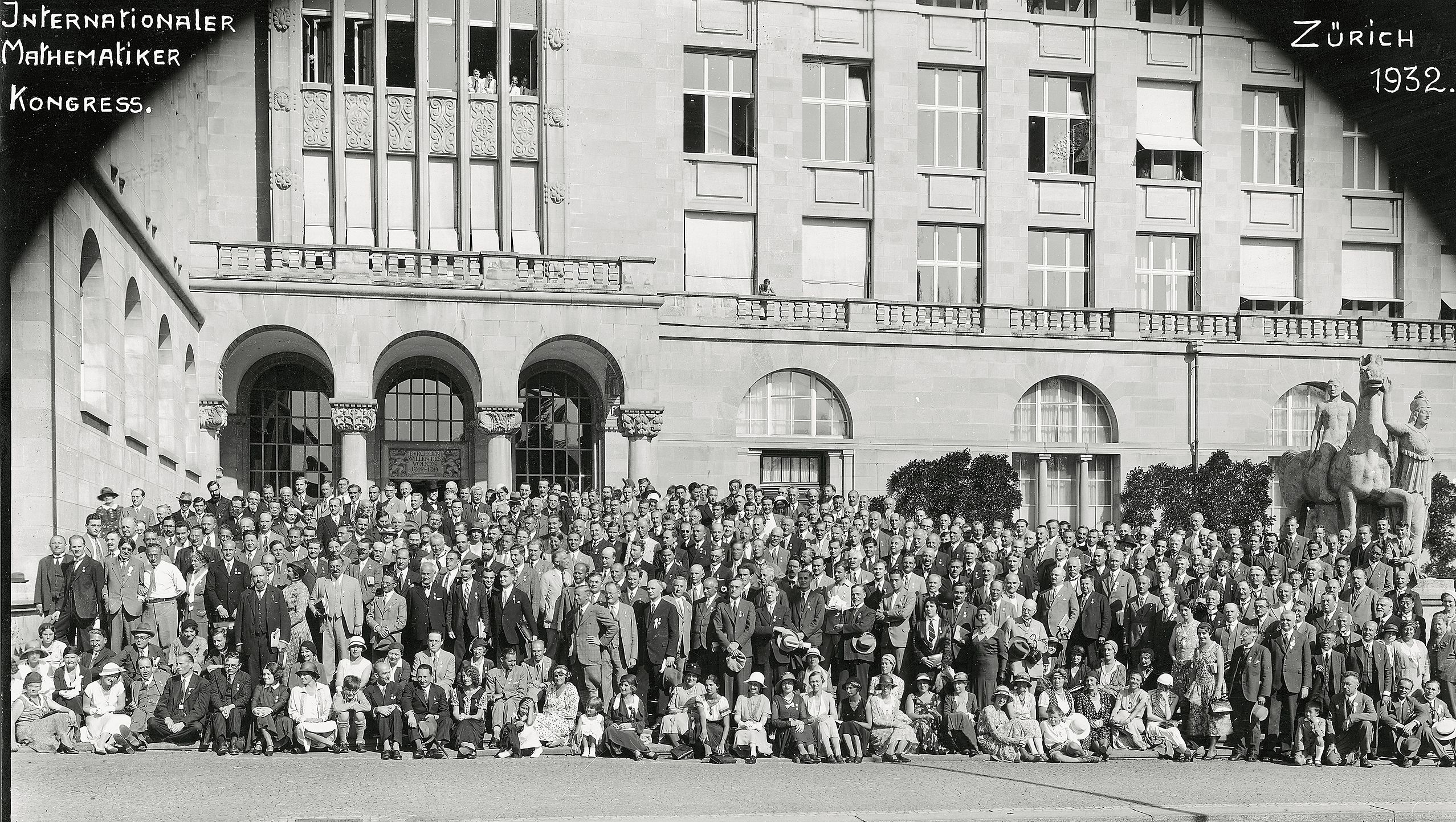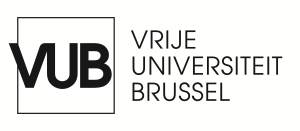
Program
Wednesday 5 February 2025 (Room: C.5.04)
| 15:00—15:15 |
Bart Van Kerkhove (Vrije Universiteit Brussel)
Introductory remarks |
| 15:15—16:15 |
Carolin Antos–Kuby (Universität Konstanz)
Group explanation |
| 16:15—17:15 |
Deborah Kant (Universität Hamburg)
The role of value judgements in mathematics |
| 17:15—17:45 |
Coffee break |
| 17:45—18:45 |
Yacin Hamami (CNRS, Université de Lorraine)
Reflections on the notion of collective knowledge in mathematics |
| 19:30— |
Dinner at the restaurant Au Stekerlapatte,
4 rue des prêtres, 1000 Bruxelles |
Thursday 6 February 2025 (Room: C.5.04)
| 9:00—10:00 |
Fenner Tanswell (TU Berlin)
Can mathematical knowledge be hacked? Social epistemology,
infrastructure, and the cybersecurity of mathematics |
| 10:00—11:00 |
Deniz Sarikaya (Universität zu Lübeck & Vrije Universiteit Brussel)
Big strokes and the mathematical landscape |
| 11:00—11:30 |
Coffee break |
| 11:30—12:30 |
Colin Jakob Rittberg (Vrije Universiteit Brussel)
Attention Please! Mathematical knowledge in the making |
| 12:30—13:00 |
Sandwich lunch (to be continued during the round-table) |
| 13:00—13:45 |
Round-table on the future of social epistemology of mathematics:
Possible topics, events, network, and special issue |
| 13:45—14:45 |
Line Edslev Andersen (Vrije Universiteit Brussel)
Maintaining community knowledge: The case of mathematics |
| 14:45—15:00 |
Bart Van Kerkhove (Vrije Universiteit Brussel)
Concluding remarks |
Abstracts
Carolin Antos–Kuby (Universität Konstanz): Group explanation
Social epistemology studies the social aspects of knowledge. In this talk I want to explore how another epistemic feature, that of explanation, can have a social dimension. For that I regard a case study from mathematics where it seems that explanatoriness of proofs is linked to epistemic networks in scientific communities.
Deborah Kant (Universität Hamburg): The role of value judgements in mathematics
Value judgements are pervasive in mathematical discourse, yet philosophers often downplay their epistemic significance, categorizing them instead as pragmatic considerations or subjective matters of taste. From a social epistemological perspective, what role do value judgements play in mathematics? In this talk, I will summarize the key findings of my PhD thesis on naturalness judgments, propose a broader generalization to value judgements, review contemporary research in this area, and pose critical questions inspired by the current state of the field.
Yacin Hamami (CNRS, Université de Lorraine) (with Line Edslev Andersen): Reflections on the notion of collective knowledge in mathematics
The notion of collective knowledge has recently received a lot of attention in social epistemology and social philosophy of science, but it remains understudied in the context of mathematics. In this talk, we will discuss a potential framework that could be useful to articulate a characterization of collective knowledge in mathematics.
Fenner Tanswell (TU Berlin): Can mathematical knowledge be hacked? Social epistemology, infrastructure, and the cybersecurity of mathematics
As artificial intelligence, large language models, and interactive theorem proving rapidly improve in their mathematical abilities, prominent mathematicians are predicting that computational tools will soon have big impacts on how mathematics is done. For example, the centuries-old dream of gap- and error-free might finally be within reach. In this talk, I will talk about how changes to the infrastructure of mathematical knowledge will bring about new dangers. Moving from the existing system of peer-review to one involving computers, means that mathematical knowledge might also become vulnerable to hacking. I will give some simple examples of what hacking mathematics might look like and why it might be done, then consider the options for the cybersecurity of mathematical knowledge. While reducing the dangers of gaps and errors, I will argue that the proposed changes to mathematical infrastructure add a new category of danger: deliberate subversion.
Deniz Sarikaya (Universität zu Lübeck & Vrije Universiteit Brussel): Big strokes and the mathematical landscape
Is mathematics as a whole driven forward by only a few geniuses—those who prove the most important theorems and generate groundbreaking ideas? Or is progress the result of many mathematicians, each contributing incrementally? Perhaps it is only in hindsight that we can distinguish which mathematicians made significant contributions and which ultimately pursued fruitless endeavors?
In this talk, we will present work in progress. Heuer and Sarikaya (2023) argued that the daily work of mathematicians can, rather pessimistically, be modeled as random walks driven by local variations of previous theorems. We now propose that the next, more complex step involves codifying local patterns and theorems into broader ‘metatheorems’—the large, defining strokes that shape our picture of the mathematical landscape. To illustrate this, we sketch a few possible case studies from combinatorics—one from infinite combinatorics and one from probabilistic methods.
Literature:
Heuer, Karl and Deniz Sarikaya (2023). Paving the cowpath in research within pure mathematics – a medium level model based on text driven variations. Studies in History and Philosophy of Science, Volume 100, pages: 39-46. DOI: 10.1016/j.shpsa.2023.05.006.
Colin Jakob Rittberg (Vrije Universiteit Brussel): Attention Please! Mathematical knowledge in the making
An ‘epistemology of attention’ is a philosophical framework that explores how attention influences what we know, how we come to know it, and the validity of knowledge. It considers how directing attention (or failing to do so) shapes our understanding of the world, including what kinds of truths, insights, or knowledge we access or overlook. This idea builds on the notion that attention is not neutral or passive; it plays an active role in shaping cognition and perception, and thus knowledge itself. In this talk I will reflect on how my prior work has contributed to developing an epistemology of attention for mathematics and present some lines of research I’d like to pursue in the future.
Line Edslev Andersen (Vrije Universiteit Brussel) (with Yacin Hamami): Maintaining community knowledge: The case of mathematics
One of the main questions in social epistemology is the question of when a group or community can be said to have knowledge, at a particular point in time. While this question has been widely discussed, little attention has been paid to the question of how a group or community can maintain knowledge over time. The question of how collective knowledge is maintained seems to be important if, for example, we want to be able to explain the reliance of researchers on past work. In this talk, we sketch an account of how the mathematical community remembers proofs of the past, and address the implications of our account for the broader question of how collective knowledge is maintained.
Organizers
Acknowledgement and Support
The workshop is funded by the FWO Senior Research Project “Collective Knowledge in Mathematics: Proofs, Collective Justification, and Reliability” (FWOAL1068) and by the Centre Leo Apostel at the Vrije Universiteit Brussel.


